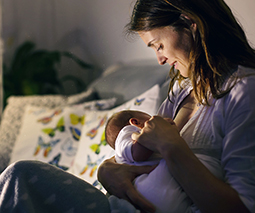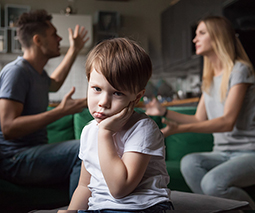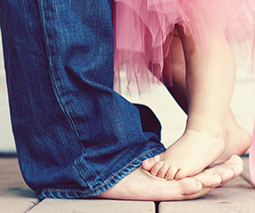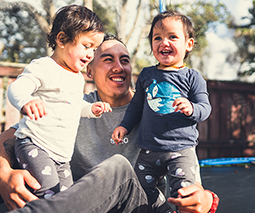How to parent from a place of love, not fear
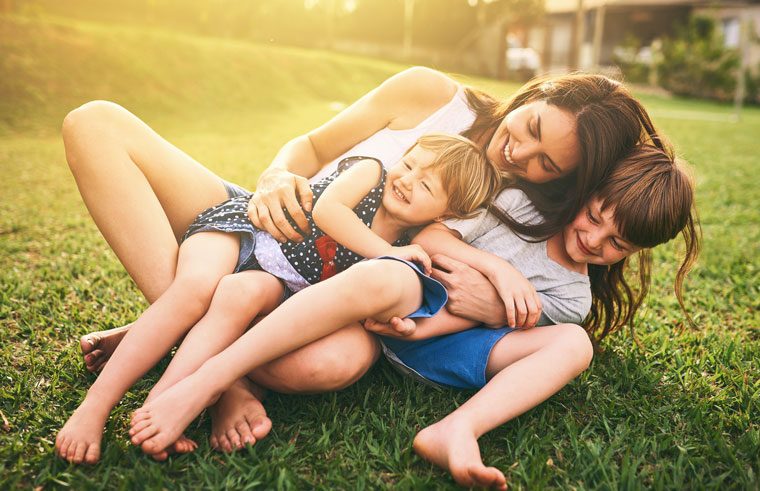
How many times do you find yourself worrying or feeling guilty as a parent? Every. Single. Day, perhaps?
In a recent episode of Feed Play Love, Dr Vanessa LaPointe spilled the beans on how these feelings arise when we parent from a place of fear, instead of love. And frankly, it’s mind-blowing stuff.
Here’s why.
Parenting like you were parented
Vanessa believes the first thing we need to do to understand our own parenting, is acknowledge that it is influenced by how we were parented.
“We know very well now, as psychologists and scientists, that we will parent as we were parented,” she says.
“We will revisit the things that happened in our own childhood unless we really invite some conscious awareness around all of that,” she adds.
It is this first “intimate space” relationship we had with our parents as children that we tap into when we parent ourselves.
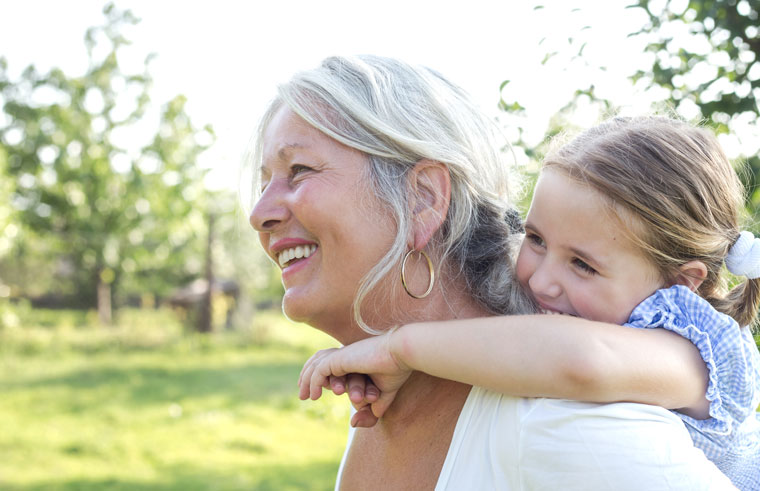
But parenting also has history
As well as parenting how we were parented, Vanessa explains the history of parenting of previous generations, and how this also influences us in some ways.
There was a time, she points out, where people thought children were born evil and a parent’s job was to rid them of this evil.
“Go and stand in any supermarket line-up and watch a child have a tantrum or a meltdown and every single other adult in that line-up, with very few exception, will be thinking things like, ‘If that kid could just be quiet.’ ‘That kid needs a little more discipline is what’s needed,'” she says.
It’s these biases that Vanessa says still play in the “social psyche of our cultural dynamic.”
Taking the compassionate route
With all this history, it’s understandable that we feel obligated to parent the way we think we should. But this often comes from a place of fear, when what our kids really need to thrive in life is a whole lotta love and compassion.
“We know that what children need above, beyond anything, is the experience of being able to [have] a compassionate relationship with their parent.”
Yesss! Preach.
“When children have the opportunity to rest into that relationship, to be deeply dependent upon their parent, then they will grow in ways neurologically and emotionally that have them become their best possible self.”
In all this, Dr LaPointe says we as parents need to chill and create an environment where we are understanding of the needs of our little loves and we don’t get muddled or switch up our terms of thinking.
Sometimes this is a conscious choice by us as parents to turn down the volume on the built-up history of the parenting noise that’s telling us how to react.
See? Mind blowing!
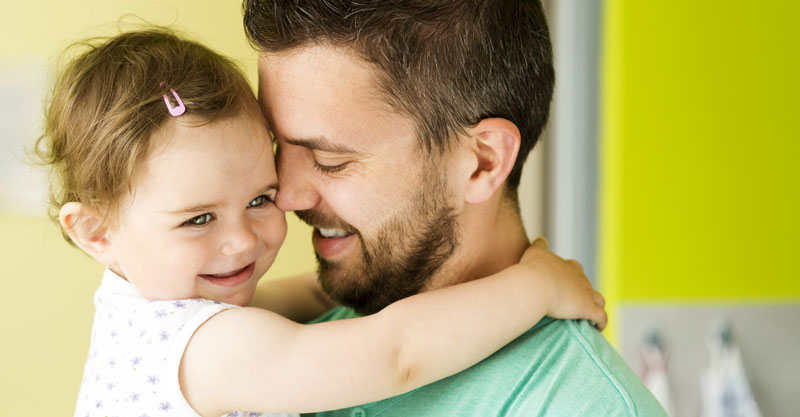
Parenting from a place of love
Vanessa addresses fear-based parenting, and really, this is so many of us *puts up hand*.
“Fear-based parenting practices are all about wanting to make sure nothing goes wrong with your child,” she explains.
“You don’t want them to grow up to be entitled and to be reactive and to be angry and all of these things … because you’re afraid of those potential outcomes.”
As a result, we turn to fear-based parenting, which Dr LaPointe says sees us parenting from a place “where you’re trying to shut it all down in order to make you feel less overwhelmed, angsty and fearful of possible outcomes down the road.”
Yep.
If this all sounds too familiar, Vanessa says the solution to this sort of worry and anxiety is found in switching to a love-based approach to parenting.
“A love-based approach to parenting knows that the child is on their perfect journey,” she explains.
By that, Vanessa means the messy bits, the challenges, the tantrums and emotional outbursts are likely developmentally appropriate and all supposed to be happening for your child at this point in their life.
“You, the big person are doing a brilliant job,” she encourages. “You just need to continue to step forward into all of your power as a compassionate parent and watch the magic of your child’s development unfold.”
This just means looking beyond the behaviour and being understanding of the reason for it, rather than being reactive to it.
“They’re never made wrong for being human. They’re never made wrong for having a, by design, immature brain,” she explains.
Listen to Vanessa LaPointe on Feed Play Love:
Making the switch
Vanessa suggests that if we want to try and move from fear-based parenting to a place of love and compassion, that we do so by embracing a curiosity about our child’s development.
“It can feel like a very big leap to go from fear-based to love-based [parenting] in one fell swoop. And so what I would suggest is just get curious. Feel like, ‘Oh, check it. She had a really hard time hanging on to her kindness right there. That is so interesting for me to observe as a parent. I wonder what I can do to inspire some kindness in her.’ Wouldn’t it be fascinating if as parents we could just approach with curiosity rather than react with anxiety and fear?”
Yes, yes it would.
Maybe love really is the answer.

